Learn how to send sequence messages on WhatsApp by following the next steps:
Setting Up a WhatsApp Bot
Go to the WhatsApp Bot Manager from the left navigation menu.

Select the WhatsApp bot account and click on “Bot Reply”.
Click on the Create button, which will redirect you to the visual flow builder to create the bot.

Creating the Bot Flow
Double-click on the start bot flow to give the bot a name.

Add a trigger and connect it with the start bot flow.
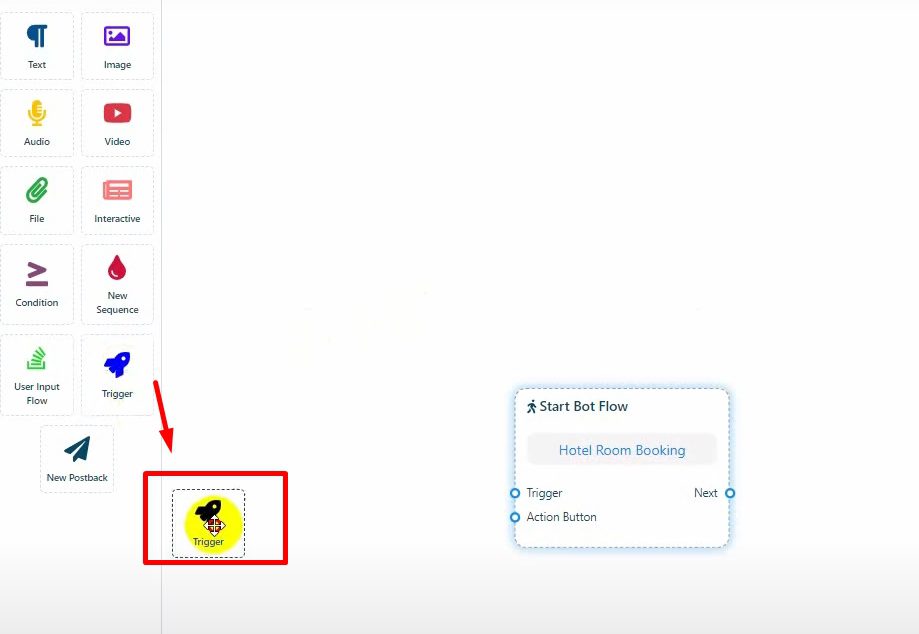
Double-click on the trigger to add keywords. Enter your keywords separated by commas. Here, we’re using exact keyword matches.
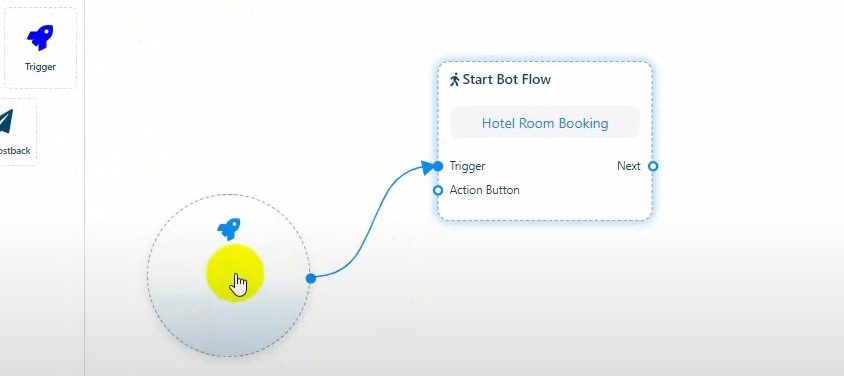
Add replies from the dock menu. You can use text, image, audio, video, file, and interactive replies.
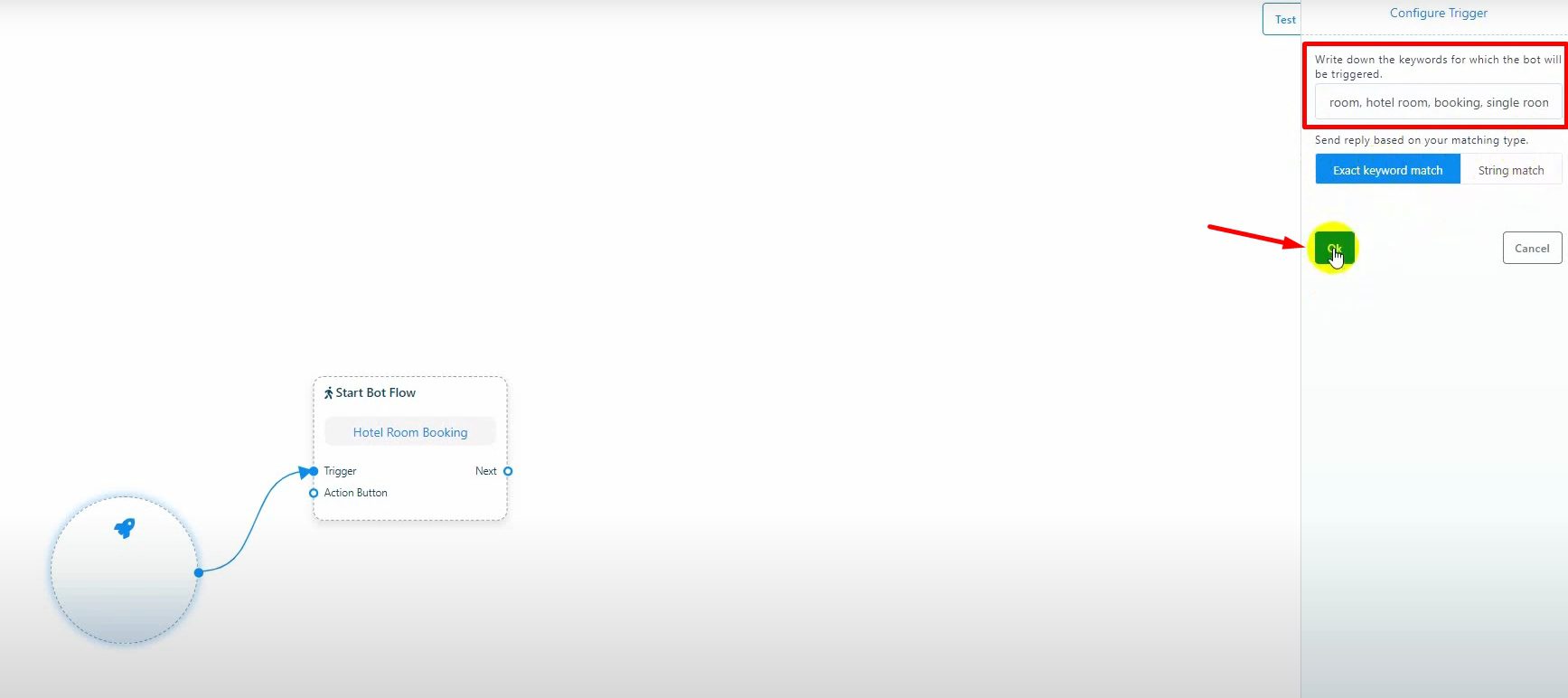
Add a text reply and connect it.
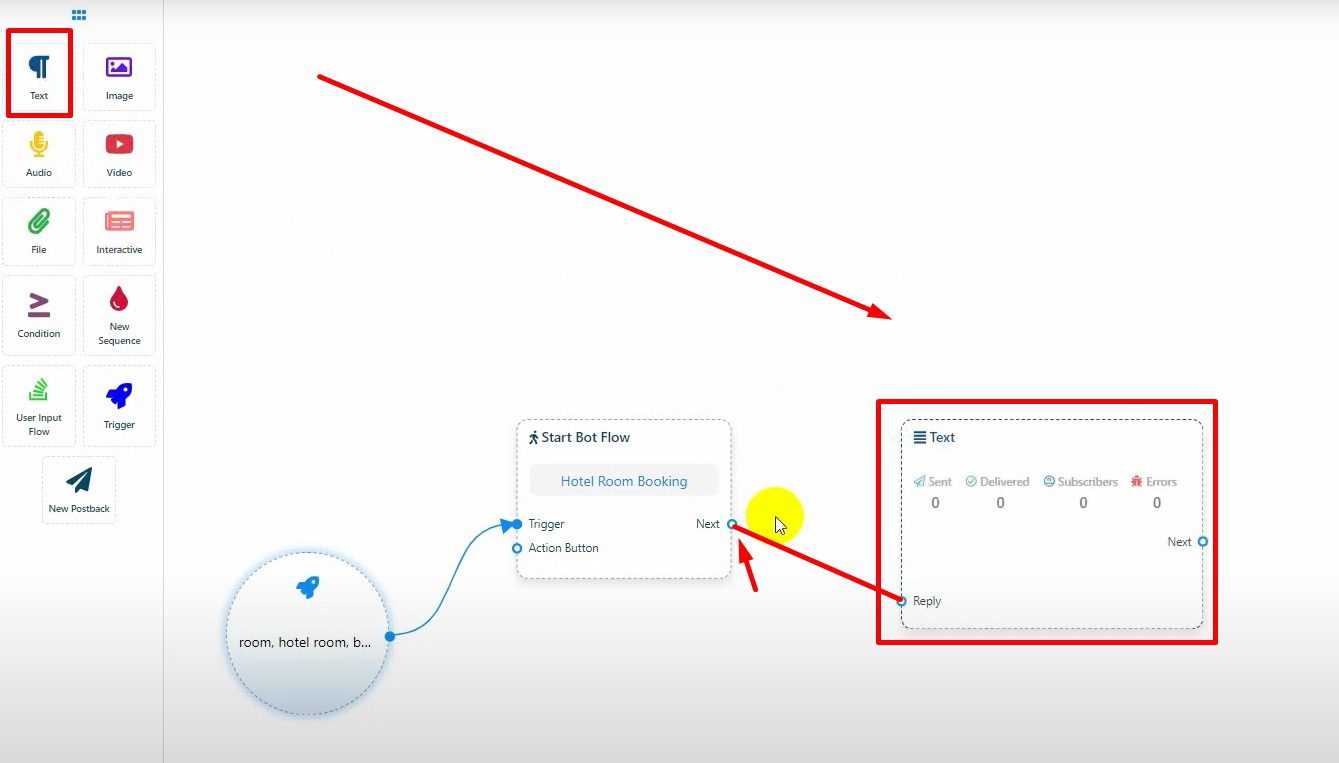
Double-click on the text element to configure it. Enter your text reply and specify a delay if needed.

Adding an Interactive Reply
Add an interactive reply by dragging from the next socket and selecting the interactive option.
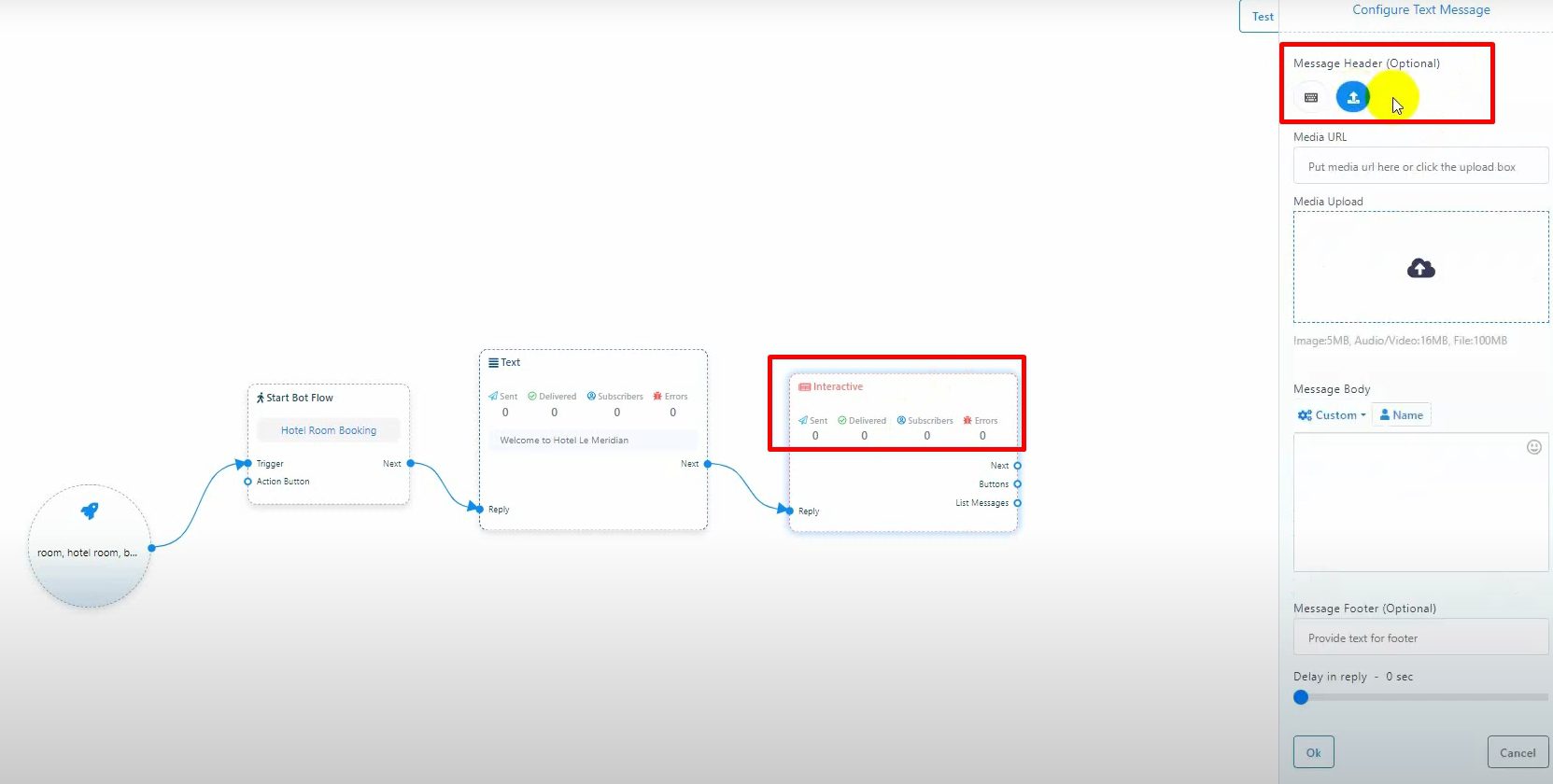
Double-click on the interactive element to configure it. Add a header (optional) and upload media if needed.
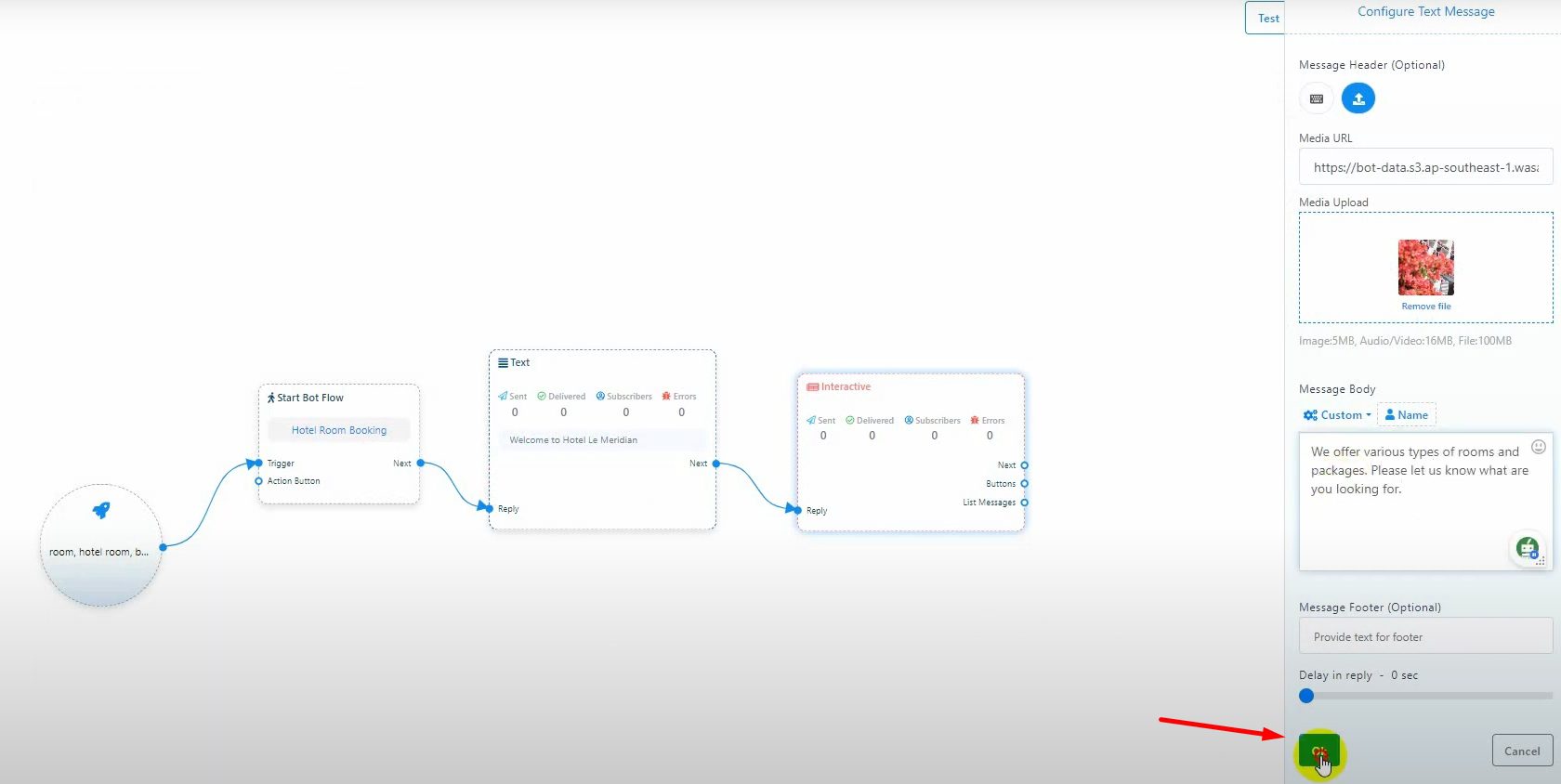
Add buttons by double-clicking on the button, giving it a name, and selecting the button type.


Create a new postback for each button and add a reply to the postback.

Adding a Sequence to a Postback
Add a sequence to a postback by selecting the sequence option when configuring the postback.

Customize the sequence messages
Double-click on the new sequence and give it a name.
Select the starting and closing times for the sequence message.

Double-click on the sequence single item and select the time frame (hourly or daily).
Add the message that will be sent as a sequence message. Use text replies or other reply types.
For daily sequences, use message templates if sending messages after the 24-hour window.

Rearranging and Saving the Bot
Rearrange the bot components by clicking on the rearrange button.

Zoom in or zoom out using the mouse wheel.
Save the bot to ensure all changes are applied.
Testing the Sequence
Test the bot by interacting with it and ensuring the sequence messages are sent as scheduled.

Check the sequence by waiting for the designated time frame and verifying that the sequence message is sent correctly.
